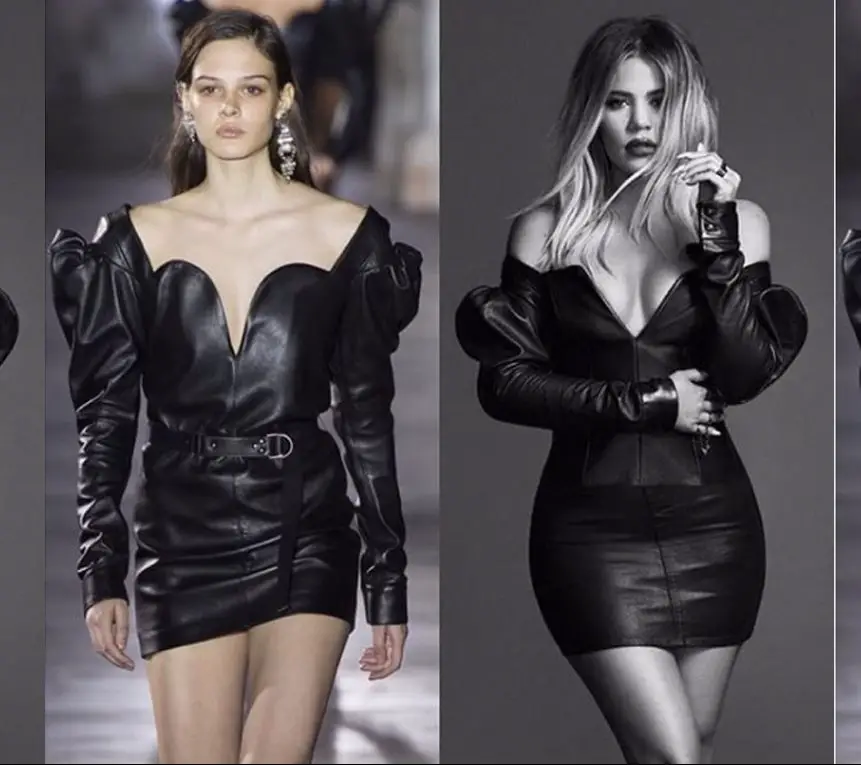Any designers attempting to cash in on the overcrowded modern fashion landscape through the sartorial shortcut of stealing designs have one very daunting task in front of them: getting past Diet Prada.
Diet Prada has become fashion’s foremost watchdog, wreaking havoc in the industry by ceaselessly taking it to task. Since its creation in 2014, the Instagram account has blown wide open some of the biggest scandals in recent fashion history. In an era defined by fast fashion, an endless parade of designer x rapper/actor/influencer/brand collaborations, and an upstart streetwear brand cropping up every few hours, Diet Prada is the regulator the fashion industry needs right now.
The account is run by Tony Liu and Lindsey Schuyler, who both have ties to the fashion industry. The page was originally run anonymously, but, in a development that feels appropriately catty for the small yet headline-generating operation of Diet Prada, Liu and Schuyler were outed as the page’s owners by a blog called The Fashion Law.
Liu and Schuyler have become de facto fashion historians. Between the two of them, there exists an endless encyclopedic well of sartorial knowledge. They’re the type of people who live for the vestiary, who can conjure up a designer’s references the second their models hit the runway. They are the kind of fashion enthusiasts that gauge the passage of time with each Spring/Summer and Fall/Winter, with brief diversions into Resort and Pre-Fall.
In an interview with i-D (published just a few months before The Fashion Law’s post and conducted anonymously), Diet Prada explained their beginnings. “We would sit and scroll through what used to be Style.com and click through the runway shows. We would crack ourselves up and be like, ‘That’s so 2000s Galliano, what were they thinking!’”
The most common type of call-out that populates Diet Prada’s feed are accusations of plagiarism. Kylie Jenner wearing a Rifat Ozbek necklace and a crystal encrusted pair of sunglasses styled a little too closely to how Naomi Campbell wore the same set in 1995. A blue pillowcase gown found in Christian Siriano’s FW19 collection that reads as nearly identical to one that Valentino debuted in 2018. A yellow-on-yellow Off-White ensemble that looks suspiciously similar to the work of indie designer COLRS.
https://www.instagram.com/p/BvKGsfTFEZ7/
Occasionally, the copycat call-outs will elicit some sort of response from the designer. Siriano ended up pulling the garment and Abloh rebuffed the accusations in a recent New Yorker profile. But, for the most part, Diet Prada seems to shoot off these withering side-by-side comparison images without any immediate expectations. The account is run for the sole purpose of taking fashion impropriety to task, and ensuring the industry remains on the creative cutting edge by keeping the world’s biggest designers on their toes.
In the scope of fashion world crimes, these are relatively low stakes. As an entirely visual industry, the razor thin line between referencing and reproducing is often too easy to cross. The occasional lookalike is an inevitability, even at the highest annals of high fashion. Besides, it’s a tall order to expect a designer to completely disrupt the way the world dresses at regular intervals. Looking through the majority of Diet Prada’s posts, the account certainly doesn’t mince any words, but it’s all done with a sort of winking reverence to the industry. All Diet Prada wants to do is make sure the fashion world is giving it an honest try.
Still, Diet Prada has proven itself necessary enough – and has struck enough of a chord with its audience of fashion fanatics — that it’s become its own brand. The account has accrued more than a million followers, including figures such as British Vogue editor-in-chief Edward Enninful, Fear of God designer Jerry Lorenzo and trailblazing makeup artist Pat McGrath. It forged a short-term partnership with Gucci, taking over the brand’s Instagram and later being invited to Miu Miu’s spring/summer 2018 show. The account has forged a cult following powerful enough to create genuine waves in the industry, and to make or break a brand with a single Instagram post.
While the copycat call-outs satisfy by stimulating the same part of the brain that derives joy from watching trashy reality shows, or witnessing the fallout to TV stars paying exorbitant amounts of money to buy their children’s college admissions, Diet Prada has also proven itself necessary by documenting and exposing the type of issues unique to this particular moment in fashion history.
As fast fashion brands like Fashion Nova continue to leech off the creativity of both legacy and independent designers, Diet Prada recently presented evidence of Kim Kardashian working directly with these companies to replicate her outfits, despite her pleas asking them to stop on her own social media. The account also called out both Gucci and Prada for introducing items that recalled racist imagery, and the lack of diversity in the companies that would have allowed the products to go on sale in the first place. Additionally, the page posted screenshots of a WhatsApp conversation between Gosha Ruchinskiy and a 16-year-old boy where the designer repeatedly requests inappropriate pictures of the boy.
And, in a multi-post saga that made news both within and outside of the fashion world, the account ridiculed Dolce and Gabanna for an insensitive ad that ran in China, featuring a woman struggling to eat a giant cannoli with chopsticks. Stefano Gabanna responded to the posts, appearing to call the entire country of China “Ignorant Dirty Smelling Mafia.” Diet Prada posted the exchange, leading the Cultural Affairs Bureau of Shanghai to axe one of the designer’s long-planned runway shows in the city, and for the brand to be cancelled across Chinese social media, with videos of former customers burning their products going viral.
https://www.instagram.com/p/BqXYtsZl6D5/
From circling the periphery to the center of fashion fascination, Liu and Schuyler have become major industry players. They have built their burgeoning fashion-adjacent empire by holding designers accountable with a simple idea: be creative and be kind.
Anyone that attempts to violate either of these parameters runs the risk of a devastating social media call-out. Diet Prada has proven that in 2019, there is hardly a more powerful force.
















